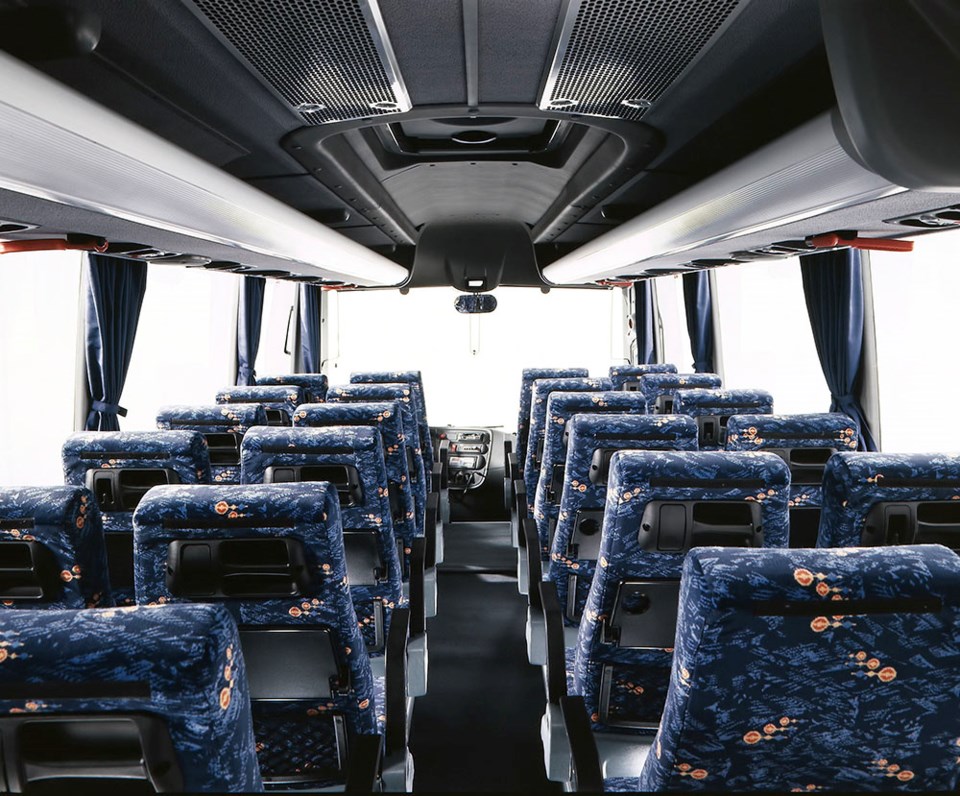Ever since Malaspina Coach Lines died here, the dream was this: a BC Transit bus that ran regularly from downtown Powell River to downtown Vancouver. Fares would be affordable, service would be predictable, coaches would be accessible for those with mobility challenges, and costs would be shared between the province, local taxpayers, and fares – same as any other BC Transit bus.
It’s what bus advocates Rae Fitzgerald and Diane Wolyniec fought for when they gathered 5,000 names on a petition back in 2021. But after years of the qathet Regional District (qRD) board and staff trying to coordinate efforts with Sunshine Coast Regional District (SCRD), qRD chair Clay Brander told qathet Living that no bus is on the horizon yet.
“We have tried so many times to pull together the players,” said Brander. “I do think there’s a solution out there but it will require the qRD, SCRD, BC Transit, BC Ferries, and possibly a private contractor coming together to figure out a solution.”
The problem with a BC Transit-funded solution is, if a bus is going to go through more than one jurisdiction, every part of that jurisdiction has to agree to fund it through their property taxes.
As Brander explained, for this Powell River-Vancouver bus to work, the residents of Area A on the Lower Coast – those who live closest to the Earls Cove ferry and don’t currently have (or pay for) any transit at all, would have to pony up for a regional bus that would primarily serve Powell River residents. Brander doesn’t blame them for refusing.
Indeed, the residents of Area A are not that into it, said the chair of the SCRD, who is also the Area A representative. Leonard Lee noted that his constituents would face a 14 per cent increase on their property taxes if they want transit – as much as they currently pay for parks.
“Area A residents live in widely dispersed communities well off the Highway 101 corridor,” explained Leonard. “Without a collector service it would not be well used and a collector service would definitely mean joining the existing transit service.”
He pointed out that locally, BC Transit has discussed a Pender Harbout-Sechelt connection for decades, aimed at serving those in Area A. But after several formal discussions and a pilot in 2011, the service was cancelled due to abysmal ridership numbers.
Leonard notes that a regional link between Powell River and Vancouver is certainly needed, given there is no service at all for most of the year.
“A private/public service with appropriate subsidies would likely make it a viable year-around service and I think taxpayers would support paying the subsidy,” said Leonard. “Many other areas in BC need similar service arrangements to replace things like the old Greyhound services.”
Powell River-Sunshine Coast MLA Nicholas Simons agrees that the current BC Transit funding model will never result in a bus here. Therefore, the province has an obligation to find another solution, instead of abandoning this region with no regular transportation to Vancouver.
“It’s at this point that other ideas need to be pursued, because this option after being tested shows it doesn’t work,” said Simons. “It’s not viable for so many reasons; ferry reliability on the Langdale route chief among them.”
That could come in the form of an alternate funding structure for rural regional BC Transit. Or, it could come in the form of a dependable subsidy to private operators, such as Sunshine Coast Connector or Coastal Rides.
“It would make sense for government to provide support to rural bus operators for all the reasons: economic, social, and environmental,” added Simons. “Now other options must become a priority.”
Join the Peak's email list for the top headlines right in your inbox Monday to Friday.


.jpg;w=120;h=80;mode=crop)
